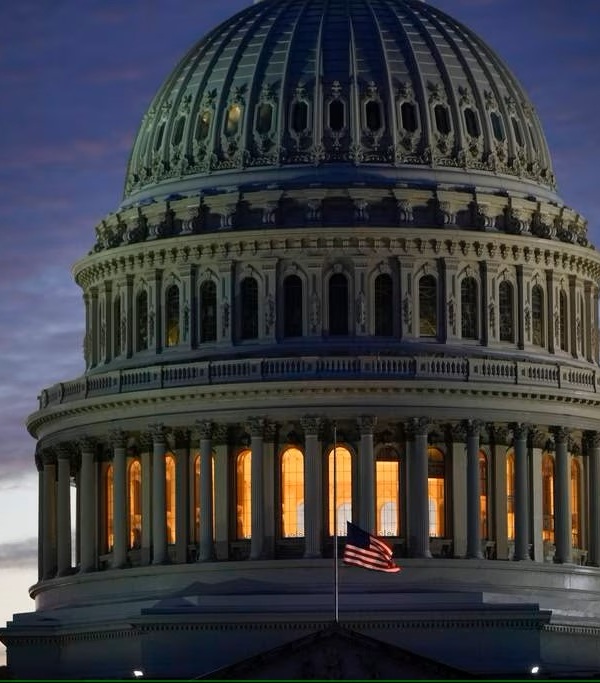Federal Primary Care Priorities
PCDC engages with lawmakers and regulators at the federal level of government to advocate for policies that expand access to high-quality primary care.
PCDC engages with lawmakers and regulators at the federal level of government to advocate for policies that expand access to high-quality primary care.

PCDC regularly advocates for regulators to center primary care in regulatory improvements or changes to the health system. Take a look at some of our most recent comments:
PCDC advocates for legislation that would reduce health disparities and increase affordable access to quality primary care. Read PCDC’s Federal Primary Care Legislative Agenda here.
Primary Care is vital to the long-term health and development of every child. Pediatric primary care monitors the overall well-being of a child from infancy to young adulthood and works to address any chronic illness while supporting the overall growth of a child.
Investments in children’s health have also proven to have long-term benefits, such as a greater chance of completing college and improved health as an adult. Such investments include improvements in the primary care workforce, facilities, and reimbursement rates.
Unfortunately, Medicaid reimbursement rates are notoriously low, severely reducing the number of providers who are willing or able to participate in the program. The lack of participating providers hurts the nation’s most vulnerable children, limiting their access to basic but foundational health care, including childhood vaccines and well-visits.
Introduced by Representatives Kim Schrier (D-WA), Brian Fitzpatrick (R-PA), and Kathy Castor (D-FL), H.R. 952 would increase Medicaid rates for primary care services and procedures to bring them in line with Medicare rates, increasing access to primary care for children by encouraging more providers to accept Medicaid and potentially stabilizing the practice of primary care for some communities.
More info on H.R. 952, Kids’ Access to Primary Care Act
The 340B program provides safety net providers, including Federally Qualified Health Centers (FQHCs), a steady source of funding that they can invest back into their underserved patient population, paying for services like transportation, care coordination, and team-based support that lead to better health outcomes and improve health equity. Many of the safety net providers that PCDC partners with and provides financing for are part of the 340B program, helping them provide more comprehensive care to their patients and communities.
PCDC supports H.R. 2534, introduced by Representatives Abigail Spanberger (D-VA) and Dusty Johnson (R-SD), because it would prohibit health insurers and Pharmacy Benefit Managers (PBM) from treating 340B providers differently with regard to reimbursement of fees. This bill would also block insurers and PBMs from interfering in a patient’s choice to receive drugs from a 340B pharmacy.
More info on H.R. 2534, PROTECT 340B Act
More info on the 340B Program
Community Health Centers (CHCs), or Federally Qualified Health Centers (FQHCS), play a critical role in our nation’s primary care infrastructure. They provide affordable, comprehensive primary care, regardless of the income level or insurance status of the patient, in medically underserved areas. PCDC frequently partners with and provides financing to CHCs, helping expand access in the communities that need it most.
PCDC supports H.R. 2559, introduced by Representatives Elise Stefanik (R-NY), John Joyce (R-PA), Lisa Blunt Rochester (D-DE), and Lizzy Fletcher (D-TX), because the legislation would reauthorize funding for Community Health Centers, ensuring continued access to care for over 30 million Americans in rural and underserved communities.
More info on H.R. 2559, Strengthening Community Care Act
More info on Community Health Center funding
High-quality, integrated, patient-centered primary care saves lives, leads to better individual and community health, and is central to health equity. Sexual and reproductive health care are major components of primary care. Over the course of their patients’ reproductive lives, primary care providers directly provide and refer their patients to the reproductive health care they need, including birth control, preconception care, counseling, and abortion services.
Following the Dobbs decision in 2022, a number of states have enacted bans or stringent limitations on abortion, which has had a devasting impact not just on abortion access but also access to contraception, counseling, and miscarriage and other maternal health care.i The impact of these changes are felt most by those who already struggle to access health care, including those in low-income, underserved, and disinvested communities, as well as communities of color.
PCDC supports H.R. 767, introduced by Representative Cori Bush (D-MO), because it would limit the harm of these state laws, ensuring that women can safely access medication abortion through telehealth and certified pharmacies, including mail-order pharmacies.
More info on H.R. 767, Protecting Access to Medicated Abortion Act
More info on sexual and reproductive health integrated with primary care